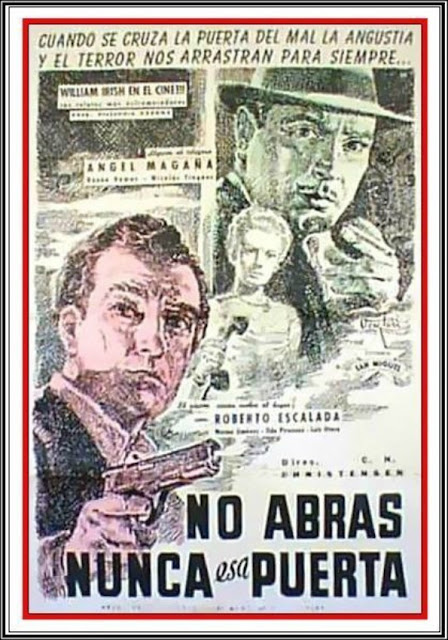Bulmer's Dray Prescott adventures just go on and on. At least they are quite entertaining. #31 in the series is called Masks of Scorpio,
from 1984. Dray has been reunited with his wayward daughter, and they
are beginning to have father/daughter adventures on the planet Kregen.
The masks of the title refer to masks worn by the religious cult that
Dray and Pompino are trying to eliminate, as well as masks worn by
others who oppose the religion. Once again Dray saves a little girl
from sacrifice, and another temple gets burned. But Dray gets
sidetracked as Pandahem gathers a fleet and prepares to attack Vallia.
Dray and his daughter musts somehow stop the fleet before it gets
started.
Each
novel contains at least a dozen separate adventures, along with plenty of camaraderie among Dray's followers, both men and women. There
is intrigue, savage fighting, and plenty of eating and drinking and
even some singing. The adventures continue and I couldn't be happier.
E C Tubb's Cap Kennedy #9 Earth Enslaved is
from 1974 and is 128 pages long. It's not really Earth, and it's not
really enslaved. But I quibble. My main concern here is a male SF
writer who, for most of his prolific writing career, has been a sexist
beast (as opposed to a sexy beast, which I am). In this story of an
alternate Earth captured by aliens, woman are dominant and men are meek
and subserviant. Fine. We've seen this a hundred times before in pulp
SF, especially in Edgar Rice Burroughs' writing. Here is my peeve with
Tubb. When all is saved and getting back to normal, Cap Kennedy (the
strong and very manly type) tells the main effeminate male hero from this alternate
Earth that it's time that men and women become equal partners, rather
than have one sex dominate the other. Certainly a very admirable statement from Cap (and Tubb). The only problem is that Cap is returning to his own universe now,
probably the most sexist one ever invented by any pulp writer. I mean
it's 1974 as he writes, and women have nothing but minor and subservient
roles in all of Tubb's stories. Cap works with an all-male team, led
by an all-male administration, in a pretty much all-male dominated
stories. So where is the equal partnership that Cap was encouraging
others to take up? Or was it merely that he couldn't stand to see women
bossing men? Pray, readers, do not preacheth unless one practiceth.
Moving on now to three novels in the Kindle Delphi Classics series, I begin with Oscar Wilde's first comedy play. Lady Windemere's Fan is from 1891 and was a big hit in London when it came out. The theatre manager asked for more, and Wilde was able to oblige him. Though silly and perhaps even a bit fluffy, the play is often outrageously funny, with one liners popping up from stage left and stage right in often unexpected ways. Sometimes they go by so quickly that one barely has time to laugh. At least reading the play one can put aside the book for a moment or two before continuing (and with Kindle, proceed to highlight relevant sections). One of Wilde's most memorable lines occurs in Act 3: "We are all in the gutter, but some of us are looking at the stars." Not just funny, but truly profound! Also from Act 3: "There's nothing in the world like the devotion of a married woman. It's a thing no married man knows anything about." One final example, from Act 1: "I think that life is far too important a thing ever to talk seriously about." I could quote pages of this stuff. Priceless. The plot concerns a woman who believes that her husband is being unfaithful to her, and though she never learns the complete truth (which I find quite sad), everything ends well.
P.D. Wodehouse wrote a series of pulp novels about life at an English boys boarding school. The books are easily read and nearly as easily forgotten. They mostly concern sports, either cricket or rugby or football, but these are often used as props for the character situations that arise during the story. In this one a bad egg tries to bully his way onto the first squad of rugby, despite his being a very poor player. He goes to extreme lengths to get his way, and it says something about the boys who endure this mischief that things get settled on their own, without teachers or headmasters. The Golden Bat is from 1904 and can be read very quickly. It does have some lasting value and no doubt teaches all the right things to boys who read it at the time. Wodehouse has many humourous situations and characters in the story, but there is enough nastiness to make it seem real enough. On the lighter side are boys who smoke in secret, and two others who secretly have pet ferrets and visit and feed them in their hideaway. On the darker side we have study rooms being wrecked and precious photos shredded, and a boy being framed for mischief to a statue that he didn't do. Oddly enough the book could probably still be read by high school boys and enjoyed.
With the 1922 Jacob's Room, Virginia Woolf begins her ascent (or descent, depending on one's view) into the hierarchy of avante garde writers. While the novel is a far cry from Ulysses, it's also a far cry from her first two novels. While Jacob may be the central character of the novel, much more is written about London, the English landscape, Paris, Athens, and at least a dozen other characters. Some of these other characters are close to Jacob, such as his mother and his best friend. But others are just on the periphery of his existence. We seem to learn more about them than we do about Jacob. What we do learn about Jacob comes from these side characters, who observe him and tell us snippets of information about him.
Ultimately I felt let down by the novel, though I do give the author full marks for attempting to diverge from the age-old story telling method. While the novel isn't close to being as challenging as even a single chapter of Ulysses, I found my attention drifting quite often. There are many fine passages to come across, but they are pretty far apart. One of them talks about how straying for only a moment from one's path may lead to an entire new adventure. Others are descriptions of what one might experience or feel, for instance at the Acropolis.
Overall, however, there is little to really engage a reader. I rely on curiosity to keep me reading a book. What might this character do next? Or, now that this has happened, how will the character deal with the new situation? Storytelling is probably the oldest cultural tradition we have, and it still engages most people, at least from time to time. Throughout the book I had very little interest in Jacob, and even less in the people who knew and interacted with him. I had nothing to grasp hold of. Ultimately I came to the final page and was glad at my arrival.
Susanna Clarke's Piranesi is from 2020. After reading the first chapter, a number of other authors popped into my head, sometimes a good thing. Mervyn Peake, James Ballard, Iain Banks, Umberto Eco, and even Edgar Pangborn spring to mind. Those are among my favourite authors, and while each has left their own unique literary footprint behind, they seem to share something about one's view of the world. Clarke writes sparsely but well, though she tends to tie up too many loose ends--it would be nice to leave a few of them dangling at the end. Her plot is concerned with "transgressive ideas", meaning those that are usually outside the limits of the modern definition of science. The labyrinth also plays a major role in her philosophy, in this case an endless oversized house with gigantic rooms peopled with innumerable marble sculptures. Characters are able to shift between one reality and one other one, though the author never defines exactly how this is done. The novel is easy to read, leading us slowly and carefully through her story. It begins like a great puzzle in which we do not have many pieces, and builds gradually until the last piece is found and put into place by the solitary main character. Banks' The Bridge offers readers a similar experience, though much more intense and troubled, and the ending is more prosaic in its explanation. Umberto Eco's The Island of the Day Before offers a third variation on the puzzle theme, and of course Peake's Gormenghast is probably the great grandfather of all such books. Piranesi is an very enjoyable read, and is recommended if you like any of these others novels and authors mentioned.
I read the Kindle edition.
Cornell Woolrich was a novelist who had many of his stories and novels turned into major Hollywood films. Cover Charge, from 1956, was his first published novel and it is quite a fun book to read. The story begins in New York near the end of the first World War. The first part of the book follows Alan and his climb from the gutter to considerable fame. During the war there was a notable dearth of men, and he was soon earning a good living by working at jazz clubs as a dance partner to rich and often beautiful women. Because of a heart defect he was ineligible for military service, though dancing all night doesn't seem to cause much of a problem.
The second part of the book follows Veronica, a woman he is destined to meet and later marry. We first hear of her as a fifteen year old wannabe flapper. She and Mary, a younger sister, live with their older brother and a grandmother in a rundown apartment in NYC. She is soon living the high life, getting by on her looks and fun, outgoing personality. The final section of the book deals with their eventual falling out, and what happened to each of the couple afterwards.
While the book has a somewhat confusing beginning, it quickly hits its stride and captures the reader, throwing him into a world of endless parties and drinking and dancing. Woolrich is a colourful writer, and his novel includes many fine quips that reminded me often of Oscar Wilde. When Veronica is asked for her thoughts on being a wife she replies, "It feels like when you get vaccinated," she said, "you're not sure whether it'll take or not." Later another great one-liner pops up: "She was pure as the fallen snow, only she drifted." A woman, describing Alan, has this to say: But oh, his eyes; they make you think things that you shouldn't. They're enough to make a good girl bad and a bad girl worse."
One more quote, discussing Veronica her girlfriend at 18 years old. "Veronica and Rosalie are of an age, between them they discuss men and women and the world in general. They are in favour of men, skeptical about women, and not particularly interested in the world in general."
I look forward to reading many more books by Woolrich.
A group of about fifty poems by W. B Yeats was next. The Wind Among the Reeds was published in 1899 and contains several of Yeats more notable works. Included are Song of the Old Mother, The Fiddler of Dooner and The Song of the Wandering Aengus. I also much enjoyed Into The Twilight and Aedh Tells of the Perfect Beauty. A very worthwhile collection to have sitting around the house.
Finally comes an epic novel by Iain Banks. Whit is from 1995 and is yet another display of the author's ability to tell a good story well. Banks can be frustrating times. The novel is very slow to get started, and the first half of the book suffers terribly from story interruptus. Isis is the name of the heroine. She is 19, innocent and naive. She is at the centre of a religious community founded by her grandfather, and because of her unusual birth date (Feb 29th 1976) will eventually become leader of the group. She is sent on a journey to find her female cousin, who has left the flock. The girl who leaves the farm is a woman by the time she returns a few days later, and she soon experiences and learns that all is not healthy at the commune. Banks fills in so much backstory in the first half of the book that the actual story of Isis' journey to London and beyond doesn't really get much chance to develop, as it constantly interrupted by pieces of backstory. The book was probably put down unfinished by a lot of readers, and I would not blame them. However, I am very glad that I stuck it out, because once the story is allowed to play out it just gets better and better. For the second time Banks has made a female character the centre of the plot and the most important person in the story. She is a strong character in the beginning, but her strength continues to grow as she encounters information that totally upends her world. She proves herself many times over, and comes out ahead after all. The book has a lot of subtle humour as Isis encounters the "real" world for the first time, managing to navigate it quite well despite her initial ignorance of how things actually work beyond the commune. A terrific book, and a long one. But the second half flies past when Banks lets loose his writing skills and fertile imagination. Highly recommended.
I read the Kindle edition.
Mapman Mike










.JPG)





















